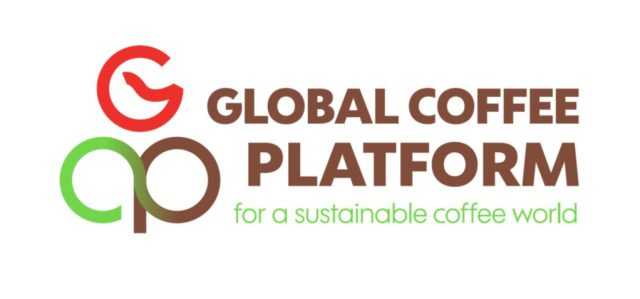GENEVA, Switzerland – The Global Coffee Platform (GCP) calls for urgent global collective action to overcome this crisis which is threatening the lives of millions of smallholder coffee farmers, the environment and the coffee industry itself.
Through GCP’s partnership with the International Coffee Organization (ICO), in support of ICO Resolution 465, and with reference to the World Coffee Producers Forum (WCPF), we acknowledge that the entire global coffee sector bears responsibility to foster the path towards a reasonable living income for coffee producers, and to help ensure the economic viability of coffee farming worldwide.
Therefore, the Global Coffee Platform calls on all coffee industry stakeholders and partners to take the following actions:
1. Engage with the international coffee exchanges (US and EU) to:
- Enhance the coffee futures contracts (Arabica and Robusta) as genuine and effective price discovery tools to service producers, exporters, traders, roasters, and retailers; This includes the regulation of high frequency, artificial intelligence, and algorithmic (black box) trade participation to minimize excessive speculative participation
2. Encourage roasters and retailers to:
- Make forward looking and increasing commitments about sourcing sustainable coffee [i] with remunerative prices that allow for investments into sustainable coffee production
- Transparently report volumes of sustainable coffee purchased by origin on an annual basis to encourage diversity of sourcing
- Promote consumption of sustainable coffee both in coffee importing markets and coffee producing countries
- Enlarge the scope of sustainable coffee, enabling greater participation of smallholder farmers to manage their farms as businesses
3. Activate stakeholders in producing countries – governments, producers, businesses, and donors – to:
- Foster the improvement of a conducive business environment for sustainable coffee production through public-private country platforms
- Reduce inefficiencies and increase transparency along the supply chain to ensure that the farmer receives a higher percentage of the price
- Promote hedging strategies and insurance schemes through producer organizations in order to protect coffee growers’ margins
- Encourage income diversification for smallholder coffee farmers in collaboration with governments, private sector, donors, NGOs
4. Mobilize governmental agencies, the private sector, and civil society to:
- Achieve policy changes that enable a living income and the economic viability of coffee farming
- Explore practical ways to channel revenues from taxes generated specifically by coffee (excise, specific, tariffs, etc.) directly to coffee farmers to pay for good environmental practices, achieve optimum productivity, and reduce costs
- Design innovative solutions to fund sustainability initiatives, for example through “check-off” programs [ii]
GCP’s action network of over 140 global members, strategic funding partners, and National Coffee Sustainability Platforms has been working on several of the items above to improve the business environment for sustainable and profitable coffee production.
Through National Coffee Sustainability Curricula, digital tools with harmonized metrics to measure sustainability, and GCP Member Initiatives for collective action we are increasing investments, efficiencies and local ownership to eliminate sustainability gaps and inspire progress towards Sustainable Coffee Regions. GCP advances local action for global results in 9 countries representing 70% of global production.
Join the efforts of GCP Members and partners today to act on the price crisis and ensure an equitable, sustainable and thriving coffee sector for generations to come.
Geneva, 6th June, 2019
The GCP Board of Directors and Executive Director:
Carlos Brando – Chair of Board, Juan Antonio Rivas – Vice Chair of Board (Olam), Marcelo Burity (Nestlé), Dan Martz (JDE), Shannon Higgins (Mother Parkers Tea & Coffee), Trishul Mandana (Volcafé), Silvia Pizzol (National Coffee Council Brazil – CNC), Juan Esteban Orduz (Colombian Coffee Growers Federation – FNC), Joseph Kimemia (African Fine Coffees Association – AFCA), Han de Groot (Rainforest Alliance), Herbert Lust (Conservation International), John Schluter (Café Africa), Jenny Kwan (Sustainable Trade Initiative – IDH), Annette Pensel – GCP Executive Director.
[i] Currently, sustainable coffee is understood to include every scheme that has been recognized for GCP Reporting: 4C, Certifica Minas, Fairtrade, Rainforest/UTZ, C.A.F.E Practices and Nespresso AAA. Additional sustainability schemes are foreseen to be recognized.
[ii] A check-off program collects funds from a small value added to the price of a product and uses these funds to do research, expand markets, increase demand or for other generic initiatives related to the product.
















